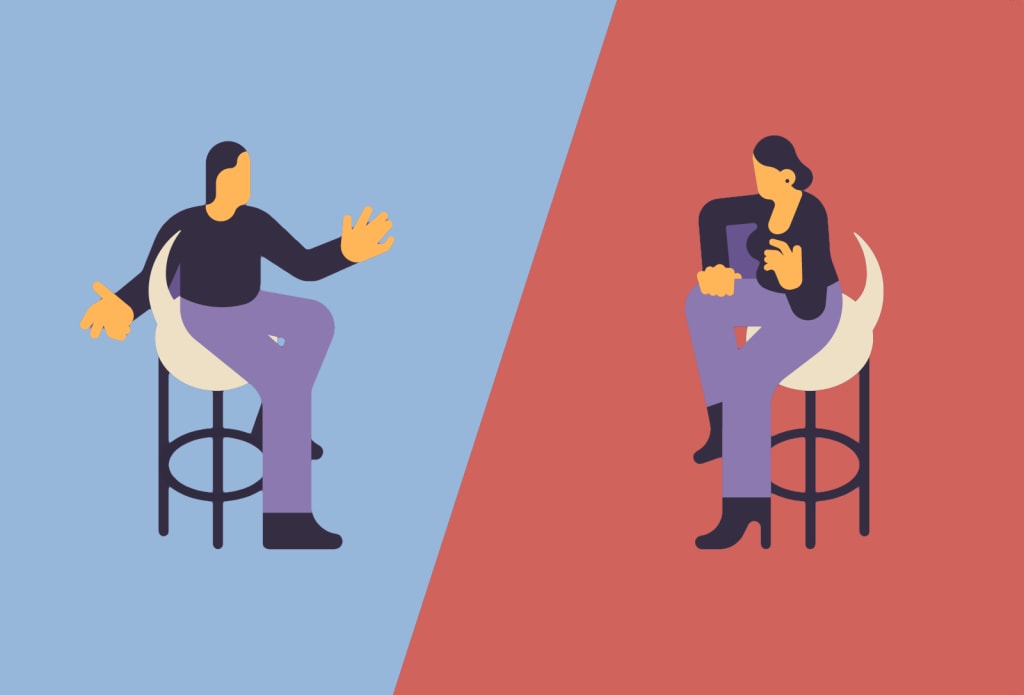Facts Don't Actually Change Our Minds
Facts or our own view? Here’s how to change it.

Isn't it incredible how you tell them the factual, often scientific, truth when someone is wrong, and they immediately admit they were wrong? But the truth is, they don't agree.
Instead, many of us are going to continue talking about something that is obviously not real. For the sake of reasoning. Are we really reasoning? Or do we really believe, even though the proof to the contrary has been presented?
The mind isn't following the evidence. Facts are stubborn things, as John Adams put it, but our minds are even more stubborn. Skepticism is not always overcome in the face of evidence; however, factual and compelling evidence may be.
We appear to undervalue evidence that contradicts our convictions and overvalue evidence that supports them because of the well-documented confirmation bias. On the opposing side, we filter out uncomfortable facts and claims. As a result, our beliefs solidify, and it becomes increasingly difficult to disrupt developed thought habits.
If facts don't work, how can you change your mind, whether it's your own or that of your neighbor?
Give the mind an out.
We're slow to admit errors. We'll twist ourselves into positions that even experienced yogis can't hold to stop saying we were wrong.
The secret is to manipulate the mind by offering an explanation for it. Convince your own mind that, considering what you knew, your previous option or prior opinion was the right one, but now that the underlying facts have shifted, so should the mind.
But we always go to the gut for a punch instead of giving the mind an out. Schadenfreude maybe your favorite pastime, but it has the detrimental impact of triggering the defenses of the other person and solidifying their roles. The moment you belittle the mind for believing in something, the war has been lost.
The mind will dig in at that point rather than give in. Changing the mind of that person would take nothing short of an acceptance that they are unintelligent until you have equated someone's views with idiocracy. And that is a concession most minds are not prepared to make.
Your beliefs are not you.

Let us understand this example. "When someone questioned one of your points during a lecture, you would start to get defensive. Your heart rate would skyrocket, you would tense up, and the contempt with which you treated the antagonistic query (and the questioner) would reflect your answer."
You realize you are not here by yourself. Through our convictions and arguments, we all appear to classify. But the issue is here. Changing your mind means changing your personality because your convictions are entangled with your personality.
A potential alternative, and one that you should have embraced in your life, is to differentiate you and your goods in a safe way. To mirror this conceptual shift, you can change your vocabulary. Like in seminars, instead of saying, "I contend in this paper…" you can start thinking, "This paper claims...".
This slight verbal tweak can fool your mind into believing that you and your arguments were not one and the same for my arguments and me.
Build up your empathy muscle.
Humans work at various frequencies. It's not because they're wrong, and you're right if someone disagrees with you. It's because they trust something you don't believe.
The job is to find out what that thing is and change your frequency. If the Detroit auto worker's main concern is employment, showing him photos of endangered penguins (as cute as they may be) or the melting glaciers of Antarctica will get you nowhere. Show him how green energy can provide his grandchildren with job protection. You have his attention now.
Get out of your echo chamber.
We exist in a permanent chamber of echo. On Facebook, we make friends with people like us. We track people on Twitter like us. We're reading the news sources of the same political frequency as us.
This suggests that our views or opinions are not almost as often checked for stress as they should be. Make a point of befriending individuals who disagree with you. Expose yourself to situations where, as unpleasant and awkward as it may be, your views will be questioned.
Conclusion
By definition, a person who is unable to change his or her mind even with an underlying change in the facts is a fundamentalist. In the end, it takes bravery and persistence rather than ease to see the facts. Are you in to learn more random facts? Click here, and you will enjoy reading some facts of the day!
About the Creator
Louie Missap
Louie is the father behind the travel blog Browseeverywhere.com. He has a background in photography, E-commerce, and writing product reviews online at ConsumerReviews24. Traveling full time with his family was his ultimate past-time.






Comments
There are no comments for this story
Be the first to respond and start the conversation.